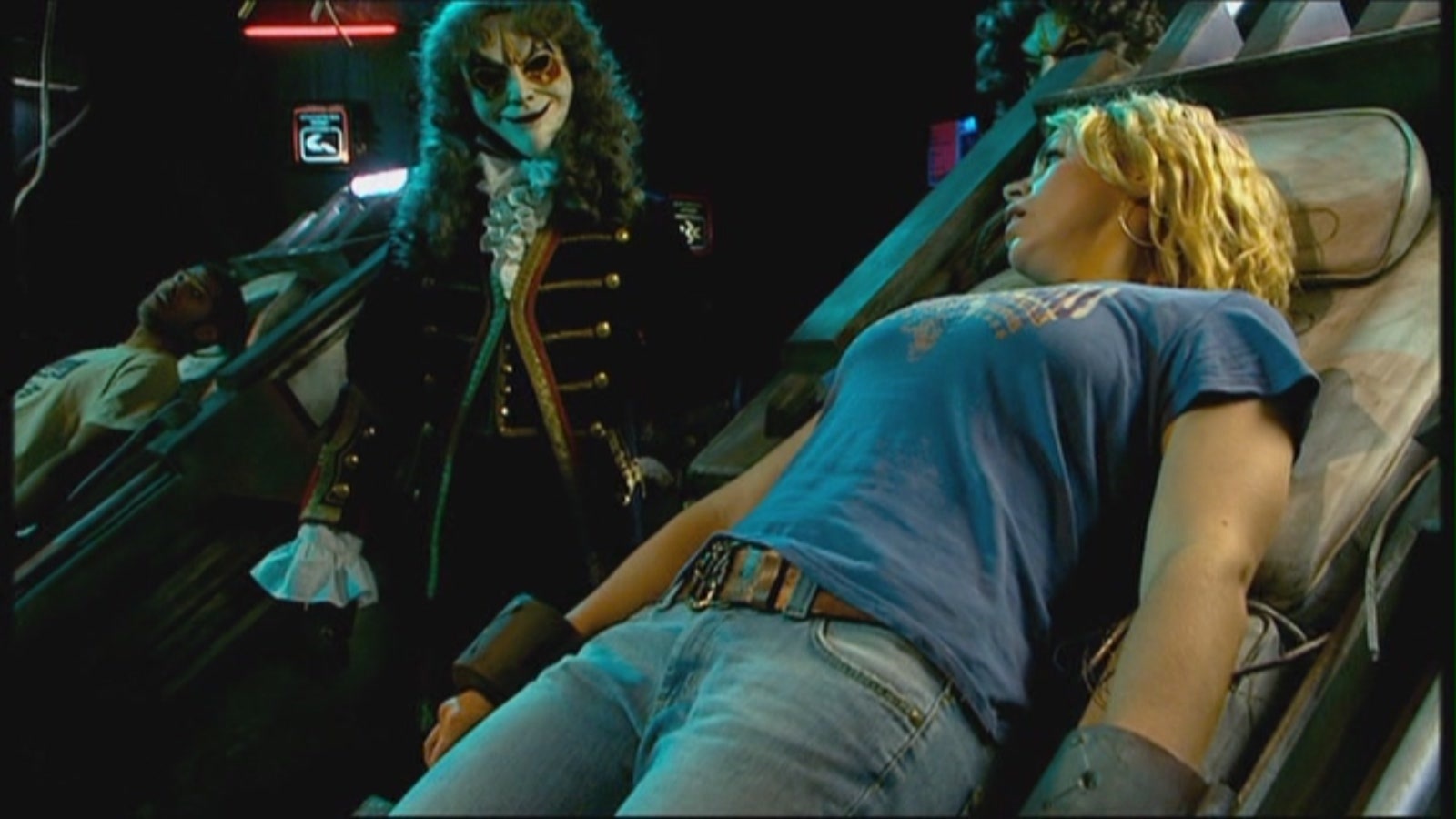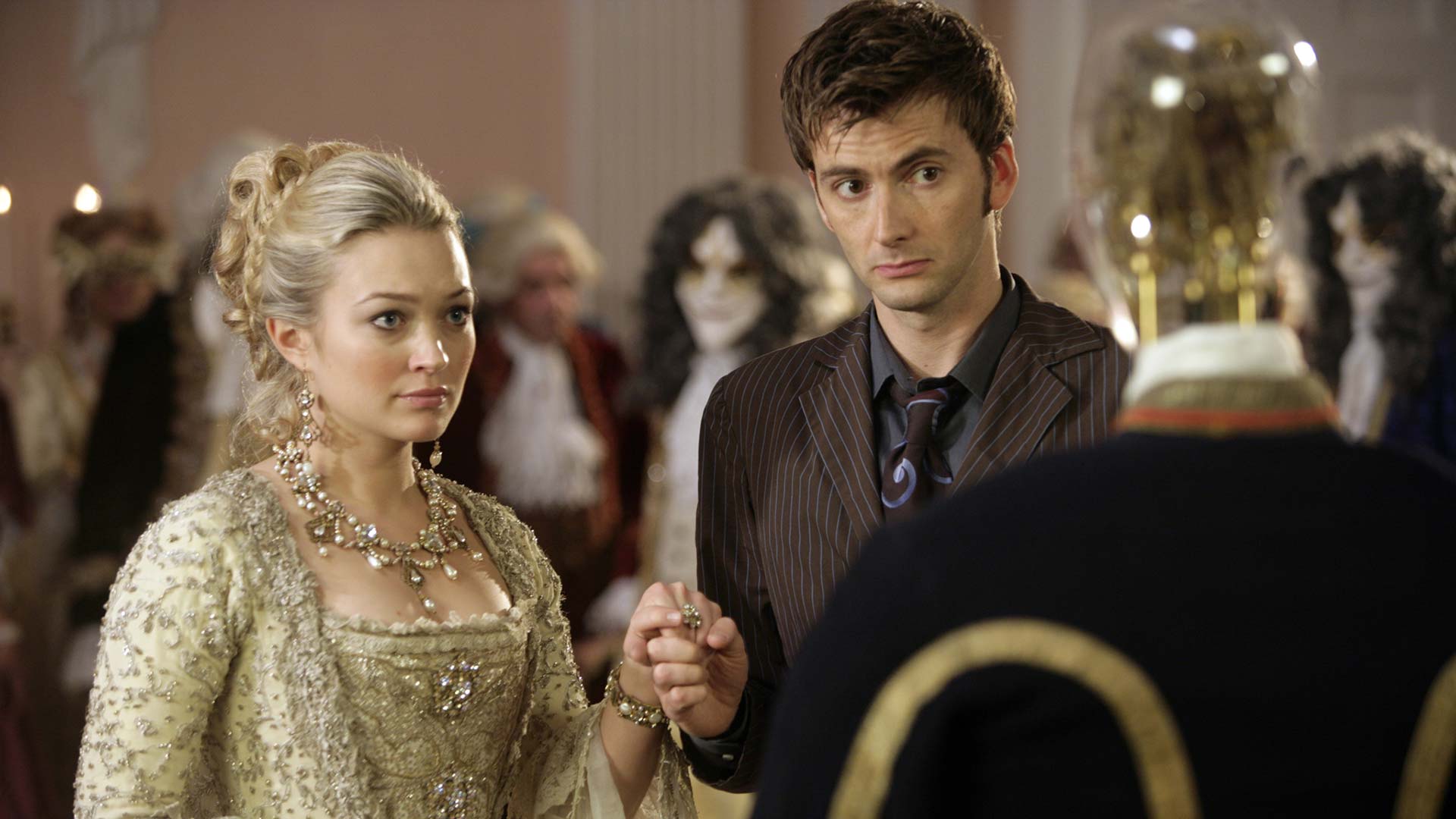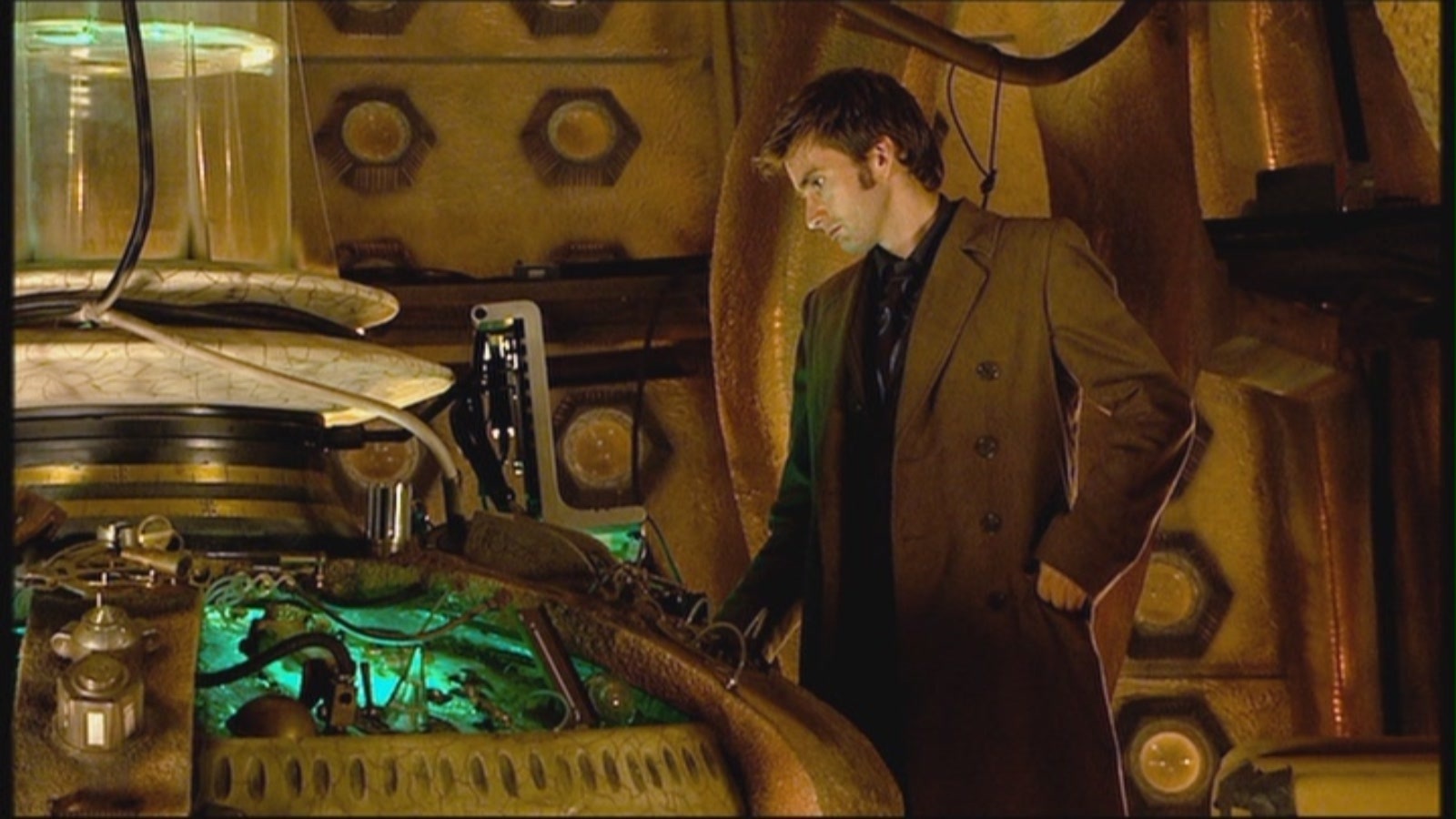2005 saw a huge spike in fear factor and strong story-telling in the form of The Empty Child/The Doctor Dances, so it was no surprise that writer Steven Moffat was brought back to bring about a new Time Traveller's Wife-esque episode for the new incarnation of the Doctor. But instead of sticking to the same tropes that made his previous entry such a big hit with young and older audiences, he instead brings about a past/future mix of time setting and story, with the trio TARDIS team and occasional scares being perhaps the only real mainstays across his episodes thus far. Often remarked as one of the modern series' best tales told, looking back on the alleged classic brings the natural question: is the love well-deserved?
Arriving on-board a seemingly-abandoned spaceship in the 51st century, the Doctor, Rose and newly instated companion Mickey (David Tennant, Billie Piper and Noel Clarke respectively) quickly embark upon quite the oddity in the form of a fully-functioning fireplace circa the 18th century, with the even weirder discovery of a young French girl called Reinette. The Doctor naturally rushes off to discover the meaning behind it, and realises that not only do the two sides of the fireplace run at different speeds but also that there appear to be robots made of clockwork roaming the French side. Considered an imaginary friend by the now-adult Reinette (played by Sophia Myles, who actually ended up dating Tennant for a while) who's somewhat smitten by his strange lack of aging and fearless approach to the ticking nightmares, the Doctor and company – with Rose revitalising her jealousy from the previous episode onto Reinette – must figure out what the droids want with the regal French mistress before it's too late...and also what the hell a horse is doing on a spaceship, although that's less important.
 With the constant back-and-forth between different sets and settings would often come an uneasy case of pacing issues, but The Girl in the Fireplace manages to avoid succumbing to such pitfalls thanks largely to its thoroughly engaging story which is filled with genuine moments of emotional pain and its occasional incursions with levity; not forgetting of course the fear factor which has since helped writer and current showrunner Moffat become the large and popular screenwriter the man he is today. And while he does inevitably return to the well that houses this episode for future instalments (even going as far as reusing the basic gimmick of the villains for Peter Capaldi opener Deep Breath to disappointing results), it's hard to deny that the original fares best for usage of any one of these ongoing Moffatisms to create a solid story and, in turn, a solid episode. Perhaps one that's since been regarded a little too highly on people's lists, but one deserving of at least the majority of its praise.
With the constant back-and-forth between different sets and settings would often come an uneasy case of pacing issues, but The Girl in the Fireplace manages to avoid succumbing to such pitfalls thanks largely to its thoroughly engaging story which is filled with genuine moments of emotional pain and its occasional incursions with levity; not forgetting of course the fear factor which has since helped writer and current showrunner Moffat become the large and popular screenwriter the man he is today. And while he does inevitably return to the well that houses this episode for future instalments (even going as far as reusing the basic gimmick of the villains for Peter Capaldi opener Deep Breath to disappointing results), it's hard to deny that the original fares best for usage of any one of these ongoing Moffatisms to create a solid story and, in turn, a solid episode. Perhaps one that's since been regarded a little too highly on people's lists, but one deserving of at least the majority of its praise.
As per usual, David Tennant is having a lot of fun as his Doctor, with this version presented appearing to be the most well-rounded in terms of emotional capability thanks largely to his natural switches between having the time of his life and being depressed/scared by a change in the status quo. His chemistry with Sophia Myles is the biggest draw that this episode may have for casual viewers, and it's clear that he's really thrown himself into the role of a lifetime at this point of production. Myles instead takes up the most of the companion role mostly because she's the focus of the entire story - she's what the droids are looking for, but they just aren't sure when they need to use her – and she's clearly liking the close-up work with Tennant, but she does a superb performance with her larger, more regal vocabulary and posture. Hell, she somehow manages to come with the large and eccentric costumes given to her, so kudos should be given for that alone, but she really sells the character. There's also Jessica Atkins as the younger Reinette, but she's as good as child actor tend to be and barely there for five minutes. With Reinette taking the main companion seat, it's not surprising to see Billie Piper in a smaller role, and the writing of her character, while a little more nuanced than before, is a little tacky as the jealous 'girlfriend' - a move that would have been fine if the return of Sarah Jane hadn't already told the same tale just one week prior. Clarke as Mickey in the meantime is just happy to be away from the basic London sets, but ultimately is there mostly to give Rose someone to talk to ahead of his big role in the following weeks. And while perhaps some focus can be given towards Ben Turner and Angel Coulby in small supporting roles in the French time zones, there's nothing really of note to comment on aside from Turner's final moments with Tennant; a truly satisfying end to that particular part of the plot.
There's no denying that The Girl in the Fireplace isn't a strong episode. It's heartfelt, it's touching, but it's still quintessentially Doctor Who thanks to its eerie monsters and sometimes cheap-looking CGI (the infamous horse jump sadly sticks out like a sore thumb that's been placed on a billboard). Some excellent performances from the core four characters, and some fine balances between comedy, sci-fi mumbo-jumbo and drama, and while it's perhaps a widely-exaggerated tale that's remarked on its brilliance so much that it makes Citizen Kane look underrated, it's nonetheless a brilliant tale that's actually worth remarking on. 9/10.


No comments:
Post a Comment